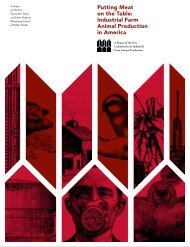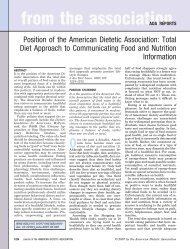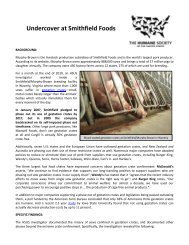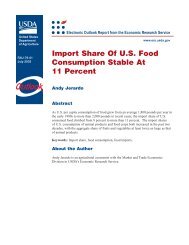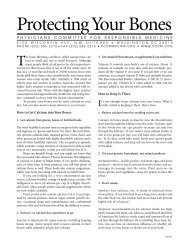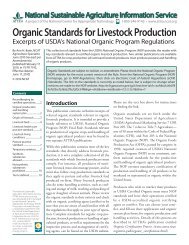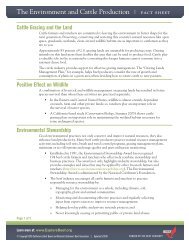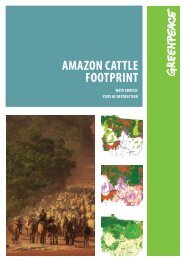THE MYTHS OF VEGETARIANISM Stephen Byrnes, PhD
THE MYTHS OF VEGETARIANISM Stephen Byrnes, PhD
THE MYTHS OF VEGETARIANISM Stephen Byrnes, PhD
Create successful ePaper yourself
Turn your PDF publications into a flip-book with our unique Google optimized e-Paper software.
pasteurized milk sickened and died and had numerous parasites (128). Salmonella can betransmitted by plant products as well as animal.It is often claimed by vegetarians that meat is harmful to our bodies because ammonia isreleased from the breakdown of its proteins. Although it is true that ammonia production doesresult from meat digestion, our bodies quickly convert this substance into harmless urea. Thealleged toxicity of meat is greatly exaggerated by vegetarians.“Mad Cow Disease,” or Bovine Spongiform Encephalopathy (BSE), is most likely not caused bycows eating animal parts with their food, a feeding practice that has been done for over 100years. British organic farmer Mark Purdey has argued convincingly that cows that get Mad CowDisease are the very ones that have had a particular organophosphate insecticide applied to theirbacks or have grazed on soils that lack magnesium but contain high levels of aluminum (129).Small outbreaks of "mad cow disease" have also occurred among people who reside near cementand chemical factories and in certain areas with volcanic soils (130).Purdey theorizes that the organophosphate pesticides got into the cows’ fat through a sprayingprogram, and then were ingested by the cows again with the animal part feeding. Seen this way,it is the insecticides, via the parts feeding (and not the parts themselves or their associated“prions”), that has caused this outbreak. As noted before, cows have been eating ground upanimal parts in their feeds for over 100 years. It was never a problem before the introduction ofthese particular insecticides.Recently, Purdey has gained support from Dr. Donald Brown, a British biochemist who has alsoargued for a non-infectious cause of BSE. Brown attributes BSE to environmental toxins,specifically manganese overload (131).MYTH #14: Eating meat or animal products is less "spiritual" than eating only plantfoods.It is often claimed that those who eat meat or animal products are somehow less "spirituallyevolved" than those who do not. Though this is not a nutritional or academic issue, those who doinclude animal products in their diet are often made to feel inferior in some way. This issue,therefore, is worth addressing.Several world religions place no restrictions on animal consumption; and nor did their founders.The Jews eat lamb at their most holy festival, the Passover. Muslims also celebrate Ramadanwith lamb before entering into their fast. Jesus Christ, like other Jews, partook of meat at theLast Supper (according to the canonical Gospels). It is true that some forms of Buddhism doplace strictures on meat consumption, but dairy products are always allowed. Similar tenets arefound in Hinduism. As part of the Samhain celebration, Celtic pagans would slaughter the weakeranimals of the herds and cure their meat for the oncoming winter. It is not true, therefore, thateating animal foods is always connected with "spiritual inferiority".Nevertheless, it is often claimed that, since eating meat involves the taking of a life, it issomehow tantamount to murder. Leaving aside the religious philosophies that often permeatethis issue, what appears to be at hand is a misunderstanding of the life force and how it works.Modern peoples (vegetarian and non-vegetarian) have lost touch with what it takes to survive inour world--something native peoples never lose sight of. We do not necessarily hunt or clean ourmeats: we purchase steaks and chops at the supermarket. We do not necessarily toil in ricepaddies: we buy bags of brown rice; and so forth, and so on.



